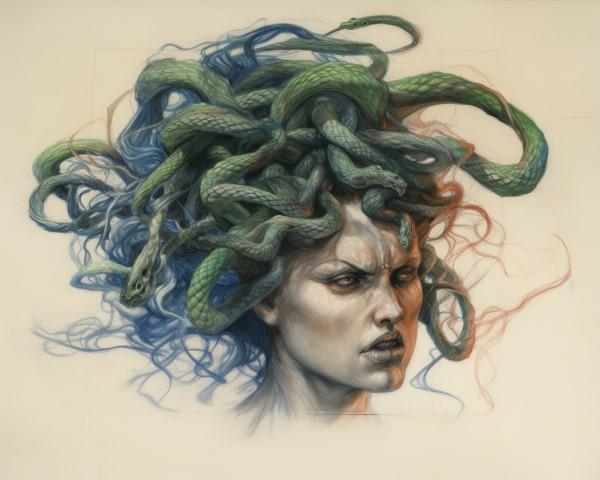KidZone Mythology:
Teaching Greek Mythology

Teaching Greek mythology to children can be an enchanting journey into the world of gods, heroes, and legendary tales that have captivated audiences for centuries. Greek mythology is not just a collection of stories; it's a rich tapestry of culture, values, and history that offers a plethora of educational opportunities. This guide aims to assist teachers and homeschooling parents in introducing Greek mythology to children in an engaging and educational manner.

The Allure of Greek Mythology
Greek mythology stands out for its vast pantheon of gods and goddesses, its heroic quests, and its profound impact on Western culture. The myths offer not only thrilling stories but also lessons in bravery, wisdom, and the consequences of hubris. These tales have influenced literature, art, and philosophy for centuries, making them an essential part of a well-rounded education.
Age-Appropriate Storytelling
Begin with stories that are suitable for the child's age. Younger children (ages 6-8) might enjoy the more straightforward and exciting tales, such as the Twelve Labors of Hercules or Theseus and the Minotaur. Use engaging storytelling techniques, including vibrant illustrations and interactive storytelling, to bring these tales to life. For older children (ages 9-12), delve into more complex stories like the Odyssey or the Iliad, focusing on the themes, characters, and moral dilemmas.
 Read the Greek Myths:
Read the Greek Myths:
- Athena's Gift to Athens
- Calypso and Odysseus
- Hercules and the Lion
- Jason and the Golden Fleece
- Medusa and Perseus
- Pandora's Box
- Theseus and the Minotaur
- Printable Greek Mythology Stories for Kids
Integrating Arts and Crafts
 Greek mythology provides ample inspiration for creative projects. Encourage children to draw their favorite scenes or characters, create masks of gods or monsters, or even construct models of places like the Labyrinth or Mount Olympus. These activities not only reinforce the stories but also allow children to express their understanding and interpretations creatively.
Greek mythology provides ample inspiration for creative projects. Encourage children to draw their favorite scenes or characters, create masks of gods or monsters, or even construct models of places like the Labyrinth or Mount Olympus. These activities not only reinforce the stories but also allow children to express their understanding and interpretations creatively.
- Explore some Greek Mythology Crafts for Kids
- Explore some Greek Mythology Coloring Pages
Exploring Themes and Values
Greek myths are replete with themes that resonate with universal human experiences, such as courage, love, betrayal, and the search for identity. Use these stories as a springboard for discussions about these themes and how they relate to the children's lives. For example, the story of Icarus can lead to a discussion about the importance of listening to wise advice and understanding one's limitations.
Learning about Ancient Greek Culture
Use Greek mythology as an entry point to explore ancient Greek culture, history, and geography. Discuss the significance of the gods and goddesses in everyday life, the role of oracles and prophecies, and the importance of heroes in Greek society. This can be expanded into lessons on Greek architecture, the Olympic Games, and the Greek alphabet, providing a holistic view of ancient Greek civilization.
Encouraging Comparative Mythology
While the focus is on Greek mythology, encourage students to compare and contrast these myths with stories from other cultures. This not only highlights the unique aspects of Greek mythology but also fosters a deeper understanding of and appreciation for global mythological traditions.
Using Multimedia Resources
Incorporate multimedia resources to make the myths more accessible and engaging. Animated films, documentaries, and online interactive resources can bring the stories of Greek mythology to life in vivid detail. Virtual tours of Greek archaeological sites and museums can also provide a tangible connection to the origins of these myths.

Promoting Critical Thinking
Greek myths, with their complex characters and intricate plots, offer excellent opportunities for promoting critical thinking. Encourage students to analyze the motivations of characters, the moral lessons of the stories, and the consequences of the characters' actions. This not only deepens their understanding of the myths but also enhances their analytical skills.
Interactive Learning Activities
Create interactive learning activities such as role-playing games, where students can assume the roles of gods, goddesses, heroes, or monsters. This immersive approach helps students internalize the stories and understand the characters' perspectives. Quizzes, puzzles, and myth-based board games can also reinforce their knowledge in a fun and engaging way.
Conclusion
Teaching Greek mythology to children offers a gateway into a world of imagination, history, and cultural understanding. By weaving together storytelling, creative expression, critical thinking, and interactive learning, educators and homeschooling parents can provide a rich and captivating learning experience. Greek mythology not only entertains but also educates, offering timeless lessons that resonate with children and adults alike.